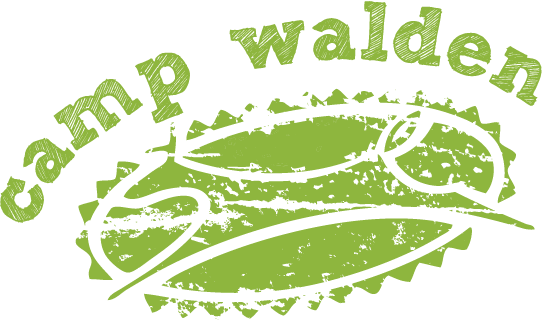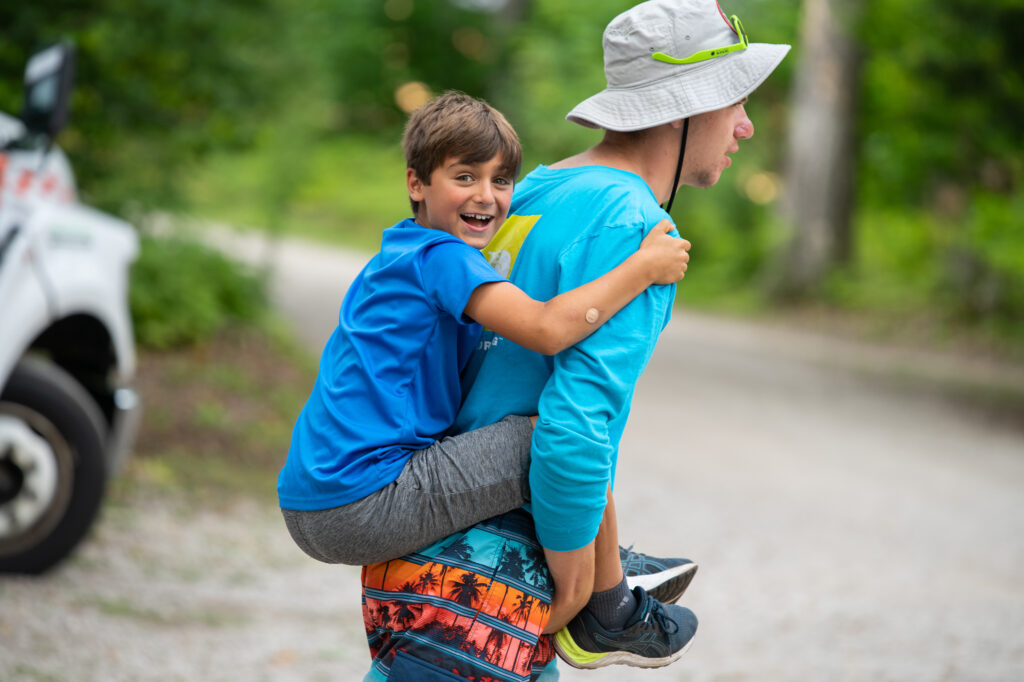Last spring, a group of Walden alumni, parents, and current staff got together over Zoom for a brainstorming session: How can we explain, to people who have never been to Walden, what camp feels like?
For many years, I’ve used the words “community” and “family” when talking about campers, parents, staff, and alums past and present. But when it comes to the real-time feeling of being at camp, those words just didn’t cut it. “Community” seemed too broad and “family” too specific.
Instead, the word we kept circling back to that day was “neighborhood.”
Neighborhoods possess a specific sense of place: the sounds and smells, the architecture and geography, the personalities of the people who live and work there.
Neighbors know who lives next door and down the street, they frequent the local restaurants and shops. They are connected through the commonality of place but also by the relationships that grow from proximity, from being in that place together.
When someone on the Zoom that day said “neighborhood,” it clicked. I immediately envisioned what happens when the first-period bell rings at camp on any given A or B Day:
I’m usually a few steps outside the office, in between meetings, when Peggy checks her watch for the final time and, while plugging one ear, grabs the wheel and pulls. Even as the bell peals, campers, and staff are, literally, coming out of the woodwork. They crisscross past us, in groups or individually, carrying tennis racquets and towels, talking to each other quietly or singing aloud. They shout “hey!” as they jog north toward the B-Field or skip south down the gravel road to the waterfront or Arts & Crafts.
It’s a little like the morning commute when everyone leaves the house to go to school or work or run errands. At Walden, just like at home, each person has his/her/their own itinerary. Because campers are choosing their own activities, creating their own A-B schedules, the daily journey results in a kind of “cross-pollination” of genders and ages.
We see this all the time at Walden: friendships forming between, say, a 6th grader and a 9th grader who sign up for the same radio class, between a camper in B12 and one in G14 who meet at 1B softball, between a counselor who teaches sailing and his 3A sailing class: five kids from three different cabins, who now shout, “Captain Matt!” whenever they see him around camp.
As it turns out, the hundreds of different paths we take at Walden—and the relationships that grow from our unique itineraries—are stitches binding the fabric of camp.
To me, a close-knit community of many families is a neighborhood. And there’s no better way to explain how Walden feels than that.


